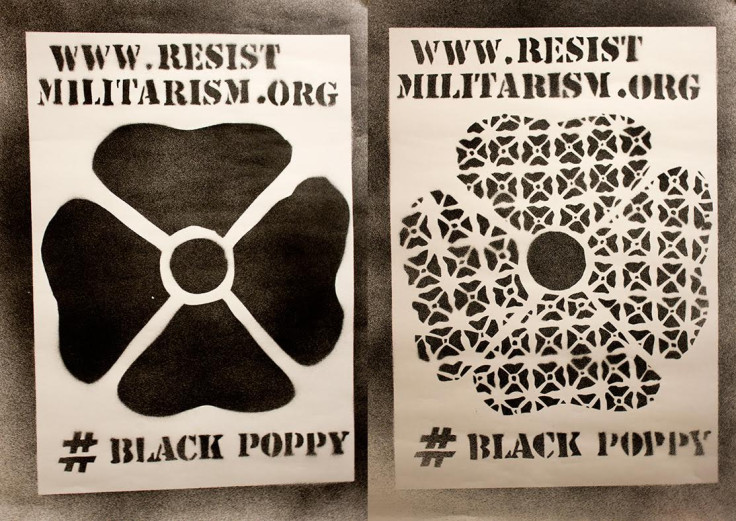Rethinking Remembrance: Why I'll be wearing a black poppy this year
It is the lost rebels - and the ones who will step forward in the future - who deserve to be celebrated.

The Royal British Legion has launched a campaign around the idea of rethinking remembrance. As the biggest establishment-backed charity their view is that we shouldn't just think about older veterans but include younger ones as well.
This is a valid point but also I believe this move is self-serving. The RBL is a highly political organisation and always has been. It has clearly identified what it believes is a way to stay relevant. That said, a rethink is overdue and I don't just mean the subversion of the event's original "Never Again" sentiment by arms firms – an issue which the RBL has made no visible attempt to address. This year I am wearing a black poppy as part of a personal rethink.
It has been used to recognise the deaths of black soldiers and I am happy to wear it in that sense. But the black poppy was given new life following a recent campaign. That campaign has recognised conscientious objectors and has an distinct anti-imperialist flavour.
I view objectors as one single species of military rebel and the black poppy as a way of recognising the broad cast of mutineers who have been bleached out of history.
Among these great souls were the leveller-soldiers who started the very debate on what we would recognize today as liberal democracy. Their names - Rainborough, Lilburne, Sexby, Lockyer – ought to be better known and the arguments they put for political freedom against a reactionary order led by Oliver Cromwell at Putney Church in 1647 still echo down the centuries.
These were soldiers who came to the cause of justice and were later betrayed, outmanoeuvred and crushed by their generals.
After the Napoleonic Wars, military veterans were involved in democratic upsurges in the face of oppression such as at the ill-fated Peterloo Demonstration of 1819 where a young Waterloo veteran was murdered by the state for the crime of activism.
Next year is the centenary of the Etaples Mutiny, one of many rebellions during WW1 which informed plans by the fearful British establishment to crush its own returning soldiers.
Early remembrance ceremonies saw angry veterans demanding to know why the dead were being remembered while the living starved, forgotten.
During WW2 soldiers rebelled again. The most famous democratic – and therefore technically illegal – gathering was the Cairo Forces Parliament in Egypt in 1944. Those gathered voted for full nationalisation of mines, banks and more besides.
For those soldiers WW1 was a recent memory in some cases. They had no illusions that the British establishment would provide them with a 'land for heroes.' And so they took it for themselves. Their rebellion was expressed through the ballot box. The veteran vote would help vanquish for a time the backwards forces in Britain just as these soldier's blood and sweat had toppled fascists elsewhere.
The reactionary Churchill was rejected for a progressive government which in turn laid the foundations of the NHS and welfare state.
Their rebellion lives on. Just... Given today's austerity it must made be clear that nobody in parliament or elsewhere can hand these hard-won institutions to private capital and still claim to be a friend of soldiers.
From the Civil War to Afghanistan it is now clear that little that is good has come from unthinking obedience to monarchs, generals or parliaments.
For me it is these lost rebels – and the ones who will step forward in the future - who deserve to be celebrated and held up. Because is it the mutineer, the objector, the resister and the barrack room lawyer - and not the placid minion - who really shapes history. It is for these real, lost heroes that I will wear a black poppy this year.
© Copyright IBTimes 2025. All rights reserved.




















